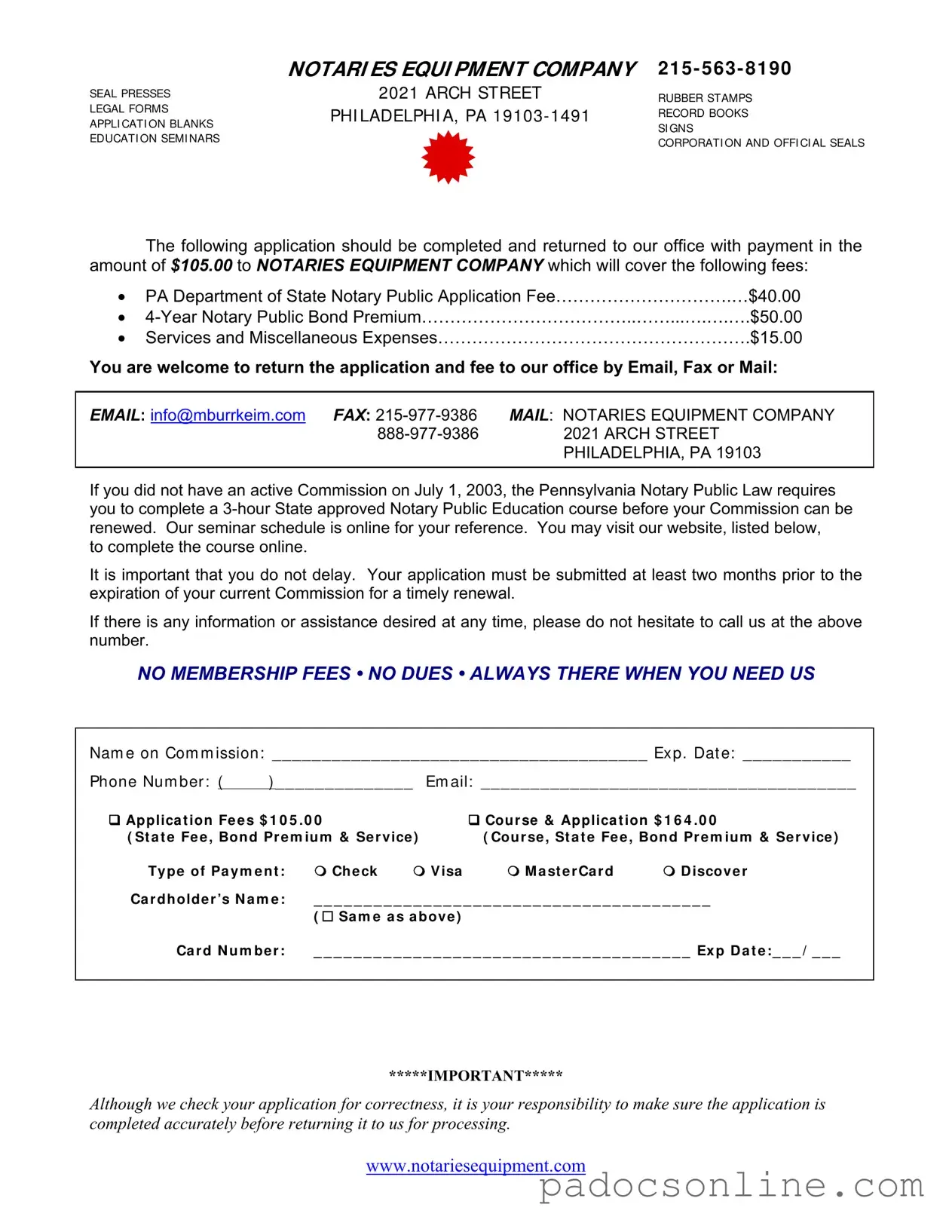Filling out the Pennsylvania Public Application form can be a straightforward process, but several common mistakes can lead to delays or even rejection. One frequent error is leaving sections incomplete. The instructions clearly state that no blanks should be left on the application. If a question does not apply, it is crucial to write “none” or “N/A.” Failing to do so can result in the application being deemed incomplete, which will slow down the processing time.
Another common pitfall involves the payment method. Applicants often forget to include the required fee of $105 or fail to provide the correct payment information. The application must be accompanied by a check or money order made out to the Notaries Equipment Company. If you choose to pay by credit card, ensure that the cardholder’s name matches the name on the application. Missing or incorrect payment details can lead to unnecessary delays.
People also tend to overlook the importance of providing accurate personal information. For instance, the name on the application must match the name you wish to appear on your commission. Using nicknames or initials can cause complications. Additionally, ensure that your signature at the bottom matches the name provided in the application. Any discrepancies can raise red flags and may lead to rejection.
Another mistake applicants make is neglecting to attach necessary documentation. If you have completed a pre-approved notary public education course, a copy of the completion certificate must be included. Without this proof, the application will likely be rejected. Similarly, if you answer “yes” to any of the criminal history questions, full details and supporting documents are required. Failing to provide these can significantly hinder your application process.
Timing is also a critical factor that applicants often misjudge. Many people submit their applications too close to the expiration of their current commission. The application must be submitted at least two months prior to expiration for timely renewal. Waiting until the last minute can result in a lapse in your notary status, which can complicate your professional responsibilities.
Lastly, applicants frequently underestimate the significance of the affidavit section. This part of the application affirms your good moral character and the truthfulness of the information provided. Any false statements can lead to severe penalties, including the denial of your application. It is essential to read this section carefully and ensure that all information is accurate and complete before signing.
